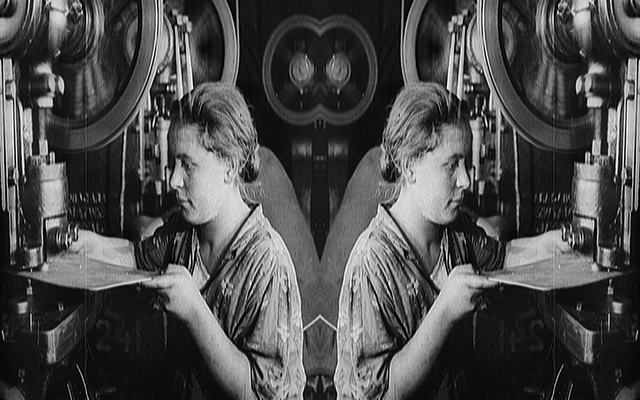Veronica Pravadelli: Gendering Memory in Italian Women’s Documentary

A Talk by Veronica Pravadelli
From the Personal to the Transnational: Gendering Memory in Italian Women’s Documentary
Veronica Pravadelli is Professor of Cinema at Roma Tre University, and is currently Visiting Faculty at NYU Cinema Studies.
Abstract
In Italy the documentary form has flourished in unexpected ways, as it has elsewhere in the world, in the past fifteen years or so and women directors have had a fundamental role in it. Italian documentary is driven by a “feminist wave”, which centers on feminist themes and formal tropes often in tune – consciously or unconsciously – with 1970s and 1980s feminism and feminist cinema. This wave, however, is not a nostalgic return to 1970s feminism, nor is it driven by a realist and naïve impulse, as 1970s documentary was. The defining feature – regardless of mode or style – is a complex configuration of female subjectivity as an ongoing negotiation between the individual and the collective, between present and past experiences. The I is divided and must negotiate the psychic with the “historical,” the self and personal with the collective. Such a negotiation is accomplished through the work of memory.
Italian women’s documentary contributes to what Joël Candau has called “mnémotropisme.” Candau has proposed this concept to explain the fascination, or better the obsession, with memory that has haunted most academic disciplines as well as cinema and visual media in the last 15-20 years and that has spurred the interdisciplinary field of Memory Studies. In my presentation I will discuss three films by engaging specific topoi of “the culture of memory” pervading visual media nowadays. I will consider the relation between personal and collective memory, the process of transmission from one generation to the next, the hiatus between History and Memory, the function of the witness and of witnessing and their relation to narration. My analysis aims at investigating the way the act of memory at once “constructs” historical facts, shapes subjectivity and transmits the cultural memory and knowledge of women’s lives and feminism. The films I have selected allow me to trace a trajectory whereby the contours of memory gradually extend from the personal (first film) to the transnational (third film). Alina Marazzi’s For One More Hour with You (2002) focuses on the daughter-mother relation, and more specifically the daughter-filmmaker’s memory of her dead mother; Paola Sangiovanni’s Girls Life is Trembling (2009) centers on the memory of the Italian feminist movement in the 1970s, thus engaging a national framework; finally, Costanza Quatriglio’s Triangle (2014) interlocks an American tragedy, the fire that destroyed the Triangle Shirtwaist factory in New York City in 1911, with a similar episode that occurred 100 years later in Southern Italy. Quatriglio’s film extends the domain of memory to transnational and global contexts. My theoretical frameworks will be drawn primarily from Feminist Film Theory, Memory Studies and Theories of Documentary.
This event is free and open to the public.